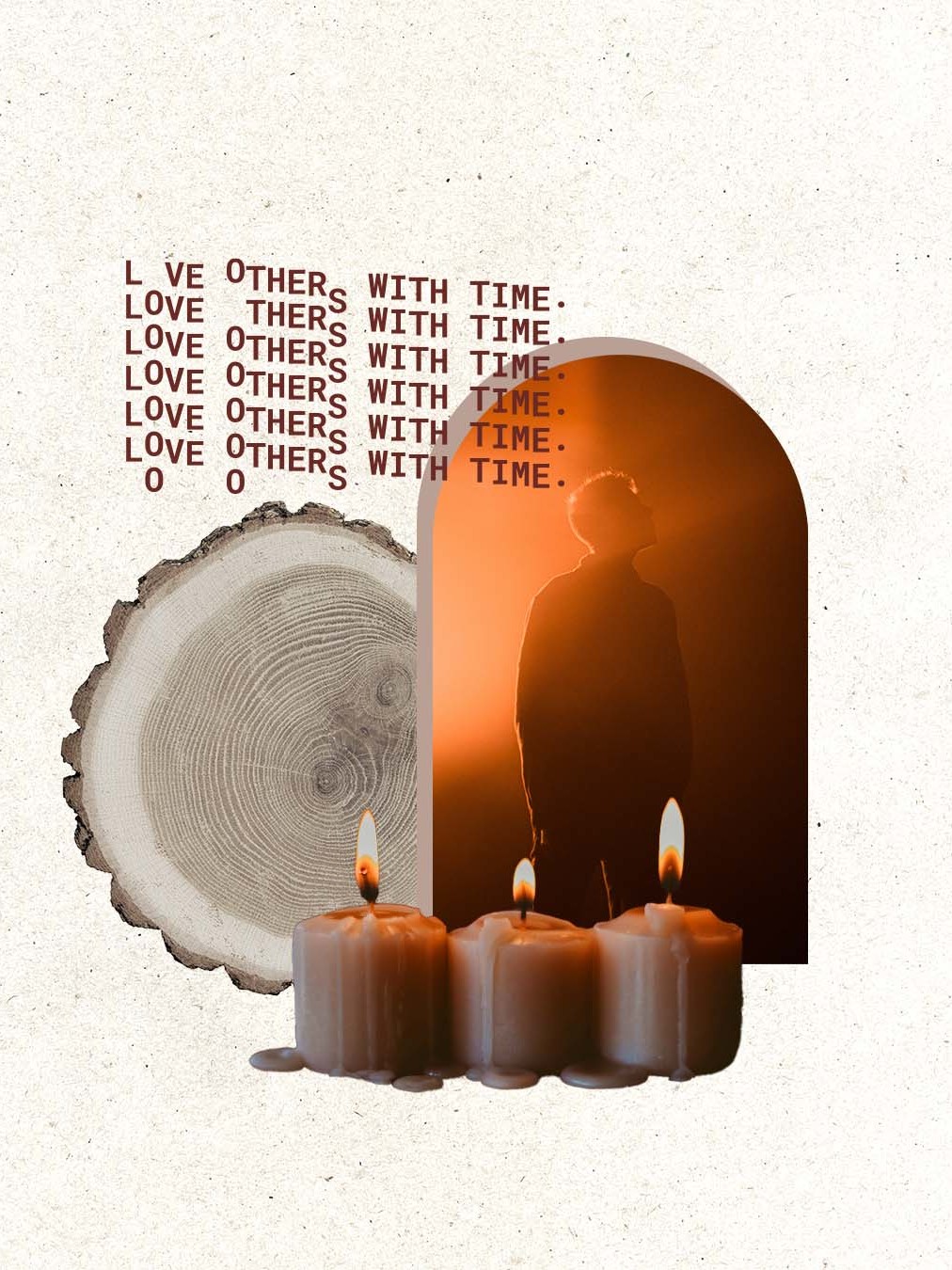Every time I see a post on sexual sin, my stomach drops. It’s like every bone in my body is triggered, knowing something I read could make me feel guilty again. So if you’re in the same place as me, thank you for taking a chance and clicking on this article.
I could’ve written this anonymously, so my coworkers, friends, and family didn’t know who I was. But I didn’t want to send a message that was just, “Hey don’t feel guilty about your sexual history—Anonymous.” I want you to know that my weakness is now strength. I’m so completely set free from guilt that I can, without hesitation, put my name on this article.
I’ll tell you about my experience, why I don’t feel guilty anymore, and why I know you shouldn’t either.
Where Did I Learn to Feel Sexual Guilt?
I had sex for the first time at 14 years old. At the time, I wasn’t thinking about sexual guilt or regret— I was thinking about that moment and what I enjoyed. It was a rush, and that’s all I could see.
But then I’d wake up to church on Sunday morning. You can imagine the pause and silence that went through my mind, realizing I was suddenly surrounded by a community of people who deemed my action as bad. It was paralyzing. Rules aren’t written on the walls in church, yet an imaginary force weighing a million pounds started shouting at me when I showed up to church: sexual guilt.
I quickly learned that when it comes to sexual sin, the correct answer amongst Christians was, “I regret it and feel very guilty, and I won’t do it again.”
We’re supposed to feel bad and remorseful, aren’t we? And the perception is that, if we admit it and say we’re sorry, this mistake can actually help us have a really interesting testimony. But only if we emphasize how truly bad we were.
Before even knowing I was forgiven and freed from guilt, I felt that “having sex before marriage” needed to be part of my testimony to show regret for my actions. That’s the thing— for many years, my story started and stopped at my guilt-ridden confession. It felt like that was all people were interested in— that I recognized my guilt.
This is where I lived for many years of my life. And, sometimes, I can still easily get stuck in a cycle of confessing and feeling guilty about it.
The problem with this cycle is that guilt becomes the end answer when it most definitely is not.
My Experience and Healing
My sexual boundaries changed a lot over the years. In one season of my life, I refused to hold a boy’s hand. In another season, I was okay with having sex. And sometimes, I decided second base was my boundary.
Frankly, I couldn’t find the answer to “How far is too far?” I failed that test back then, and I still don’t know the correct answer. The “how far is too far” test is exhausting, and it only led me back to regret. Exhaustion led me to eventually give up trying really hard to earn a status as a “good Christian”—instead, I started to focus on my relationship with Jesus.
I heard people talk about their loving relationship with Jesus, the Holy Spirit talking to them, and I wanted that. They seemed happy.
I started listening to podcasts about Jesus because I wanted to learn. I focused on Jesus’s love and stopped focusing on answering the, “How far is too far?” question, or checking boxes.
That’s one of my best pieces of advice—shift your focus away from rules, and on to Jesus.
Because someone scolding, “Don’t have sex” or declaring “This is the boundary” (which may be good advice) can easily lead to a rule-run religion, not a relationship with Jesus.
I started to ask the Holy Spirit questions. I started to talk to Jesus about my heart. And I was met by a God who gives truth and grace. His character changed my character.
I’m not advising you to throw boundaries or rules out the window. But I am saying that they’re not what healed me. A relationship with Jesus and the Holy Spirit is what led me gracefully out of being sexually active, and gave me true peace in my heart.
Jesus never looked at me with accusation. He never slammed a justice hammer down. He didn’t tell me rules, and I was never deemed condemned. He told me my identity; his daughter.
Satan’s Plan vs God’s Plan
Despite my experience of God’s grace and love, Satan often challenges that identity— he wants to keep me identified by my sin. He wants to convince me I’m defined by, “I’ve had sex before marriage,” and keep me in a cycle of mistakes, confession, and guilt. He wants to whisper my sins to me, keep me waking up feeling not good enough, and paralyze me with regret. He constantly points out all my mistakes and puts a weight on me.
It took me a long time before I realized that God’s character is actually really nice. He’s approachable and has very kind eyes. In fact, it’s his kindness that leads us to repentance (Romans 2:4). I often mistook Satan’s schemes for God, confusing the guilt as something God wanted me to feel. I eventually learned that God wanted me to move past a life of feeling bad. He actually wants me to be happy.
How do I know that? Because Jesus died for me. Jesus paid for me to move past feeling guilty. God revealed to me that the entire point of being a Christian is accepting what I don’t deserve. Jesus Christ took my guilt, and I get the benefits of what he did for me.
I get these benefits, not because I found a way to be good enough, but because he loves me and is truly giving me the free gift of new life. Jesus is the answer that actually destroys the culprit; condemnation.
Using the “Both and And” Tool
Learning that God wants me to identify with Jesus and enjoy my life was a breath of fresh air, but it didn’t stop my stomach from sinking, or my heart from aching. Guilt continued to show up at my doorstep, and I continued to question if I should let it in.
I was hanging out with friends one night, and unexpectedly, a boy who I’d previously had sex with walked into the room. There wasn’t a loud scene in real life, but there sure was on the inside of me. Satan was throwing the weight of guilt on me.
At that moment, I had a choice; allow Satan to speak into my identity, or allow Jesus to speak.
I chose to stand against the weight of sexual guilt by using the “both-and” tool.
I learned about “both-and” in therapy. My therapist explained to me that it’s okay and normal for seemingly contradictory realities, and feelings, to exist. Especially as a Christian, they tend to frequently exist. The world is both sinful and redemptive. I am both fallen and saved. “Both-and” helps me to see a fuller picture of my reality, instead of only looking at one side of things.
When that boy walked into the room, I almost surrendered to the gut-punch of guilt. I knew it was true that I’d had sex with him. My emotions wanted to take over. But “both-and” helped me see both realities. I did not only have sex with that boy. Instead, I both sinned with that boy, and now am forgiven.
The way I often feel “caught” in my past mistakes reminds me of the woman in John 8 who was caught in adultery. She and others knew the law condemned her to be stoned to death. When reminders of my mistakes pop up, I feel that— I know I deserve nothing, and should feel guilty.
But in the story, before even addressing her sin, the woman was met with compassion and loved by Jesus first. And so are we. Our identity is loved and forgiven, and that’s what sets us free from our mistakes.
My story does not end at sin, because now it ends in victory— my identity is “daughter of God, forgiven by the blood of Jesus.” My weakness becomes my strength. I am both a sinner and live in freedom.
To apply “both-and” to past memories that could make me feel guilty is how I manage to not let myself stay stuck in only the negative. I won’t let Satan have the last word or define my life. It’s so cool to know that every single part of my life never ends in guilt because I get to say “and Jesus.”
Victorious Sinners
Today, my stomach drops when I see an article on sexual sin because I’m nervous that I could misunderstand the gospel. Am I really forgiven? Should I still feel guilty? How far is too far?
It’s really easy for me to fall back into not feeling worthy of Jesus, feeling guilty for my past, and starting to focus on asking questions about the rules again. But honestly… the best things in life don’t come easy.
Choosing to believe the gospel—or good news about Jesus— is something I have to remind myself to do and that’s okay! It’s actually what makes me a strong warrior. A victorious warrior for the gospel.
My prayer is that you also choose the good news of Jesus—not guilt—and experience true healing.
Post first published December 2021. Reposted with permission.
Margaret lives in Grand Rapids Michigan with her newly married husband. She works full-time at Our Daily Bread Ministries, enjoys playing sports and hanging out with friends. She’s recently begun pursuing her passion for writing on the side. If you would like to connect with Margaret, you can visit www.itsokaymetoo.com







